Abstract
Spatialising water in Singapore’s urban fabric, canals exist as a physical extension of the government’s hegemonic control of water. The separation of culture and water has resulted in the detriment of water-wise communities, and are ironically, increasingly reliant on water governance to provide a consistent supply of treated water. It is clear that these hard, artificial boundaries are no longer the sources of pollution they used to be, yet the urban fabric has not integrated them back into our communities yet. This thesis charts the extent of neglect canals have suffered due to the hydro-logical approach of Singapore’s water governance, and how socio-environmental issues serve as key opportunities to jumpstart the hydro-social transformation of our waterways.
Water is a vital source of life; culture is people’s way of life.
Pivoting on the issue of master planning in Singapore in balancing our economic and social demands, this thesis proposes the redevelopment of canals as amphibious assemblages for the various social values of water demand to manifest. The interventions tackle the consequences arising from the separation of culture and water, including environmental degradation. A critique on the notion of sustainable urban development is also raised, questioning the effect and influence that state corporates have in shaping the built environment as the government’s economic arm. Tiered architectural and urban interventions are pursued, illustrating how hydro-social water governance can redirect state conglomerates’ economic agendas in realising urban resilience, manifesting as urban commons.
Scope
The Hydrosocial Assemblage mobilises a series of land-water urban typologies to synchronise water sensibilities along the vast network of canals. A critique on the hydro-logical approach of water governance in Singapore, this thesis leverages on the drive for sustainable urban development to acculturate hydro-social planning parameters in challenging the status quo of land-water parcellation. The alternate decentralised approach is propelled by the possibilities of disruptive innovation and water’s mutability in realising new synergies between water-centric communities and in the process, strengthening collective urban resilience of diverse local communities.
Water, water everywhere, nor any drop to drink.
Hypothesis
In light of evolving global attitudes towards water, this thesis explores the possibility of integrating canals into the urban grid in expanding the social values of water demand. This conceives new urban typologies that can set in motion the change from the current hydro-logics of governance towards a hydro-social approach of sustainable urban development. This thesis reimagines the conventional approach to urban development with disruptive urban innovation that elevates canals as a hydro-social highway in catalysing the formation of smart water sharing networks.
Probing the motivations of urban development in Singapore, this thesis also questions the effect and influence that state corporates have in shaping the built environment as the government’s economic arm. Through architecture and urban interventions, it illustrates how the government can incentivise the private market to orchestrate new values for public datums central to the forging of water-centric identities, culminating as an amphibious assemblage that is representative of a new urban resilience manifested as urban commons.
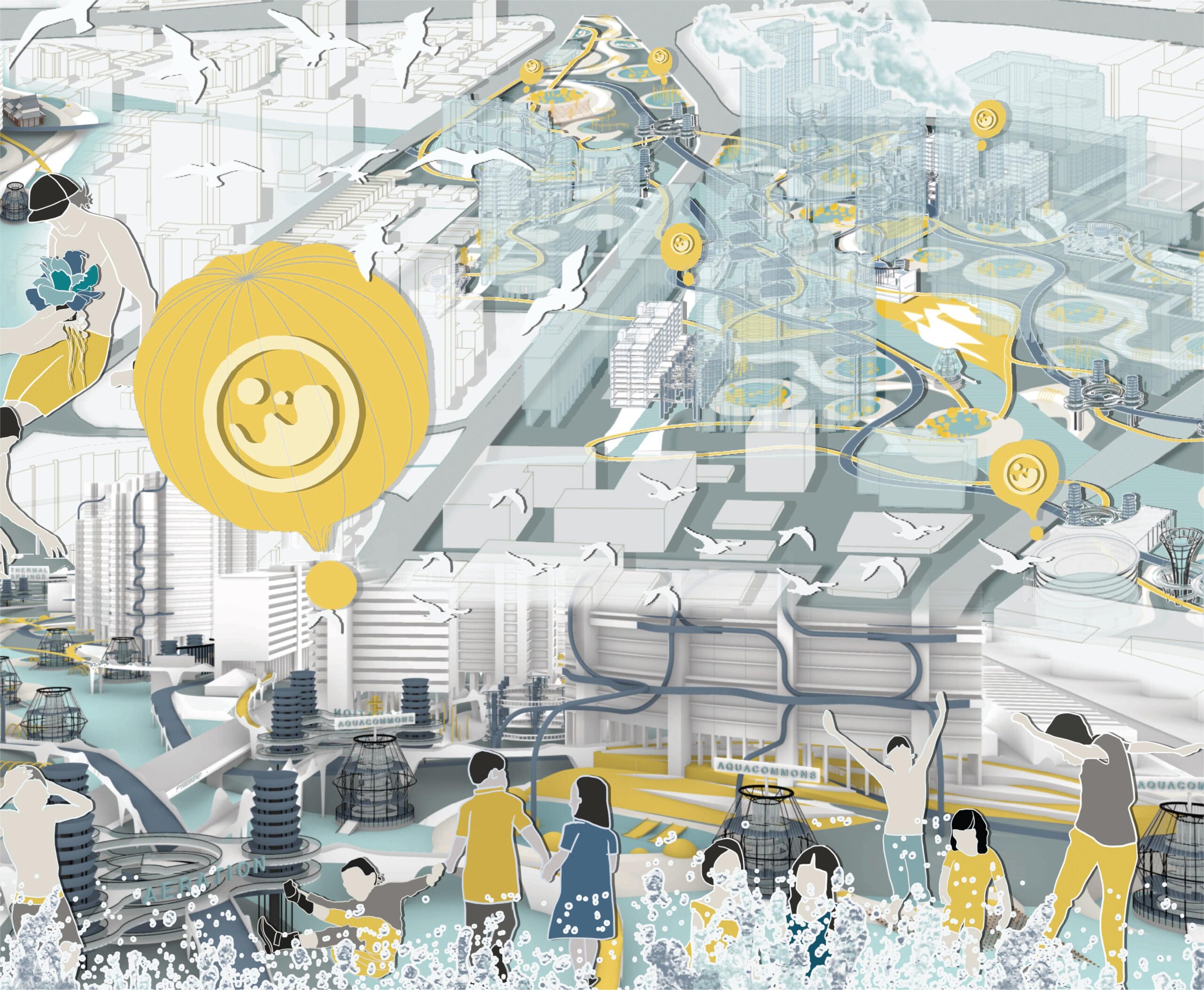
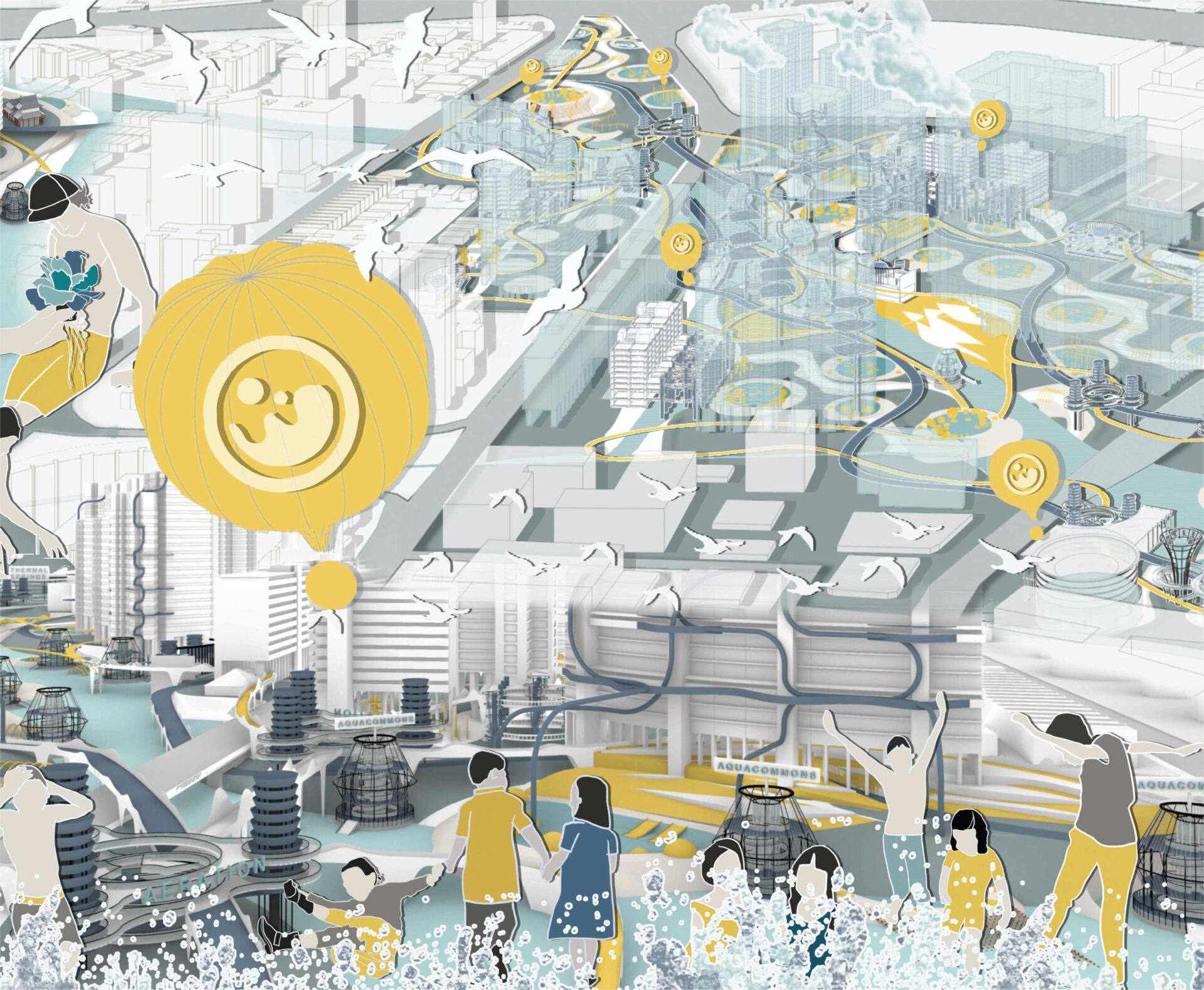
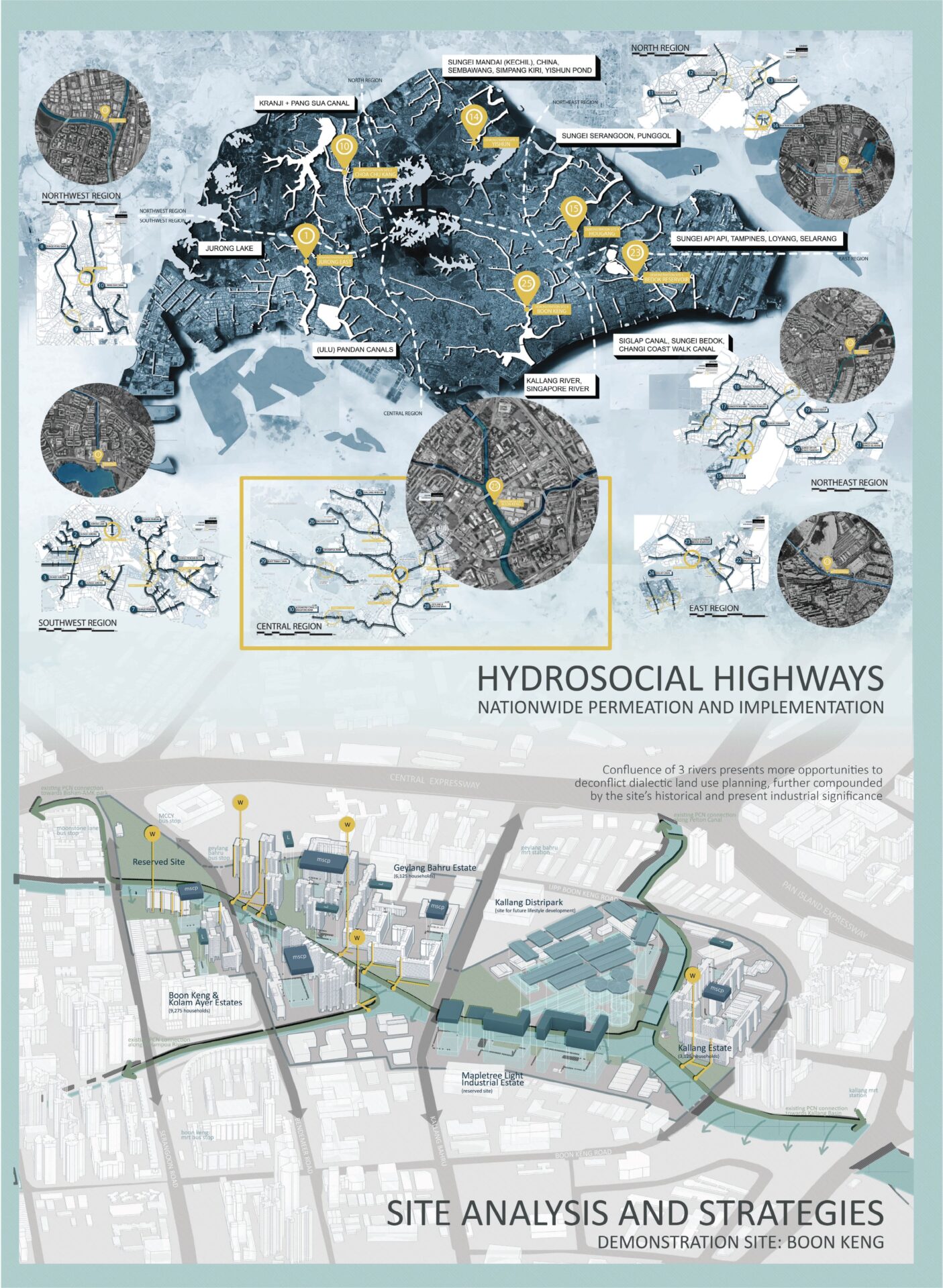
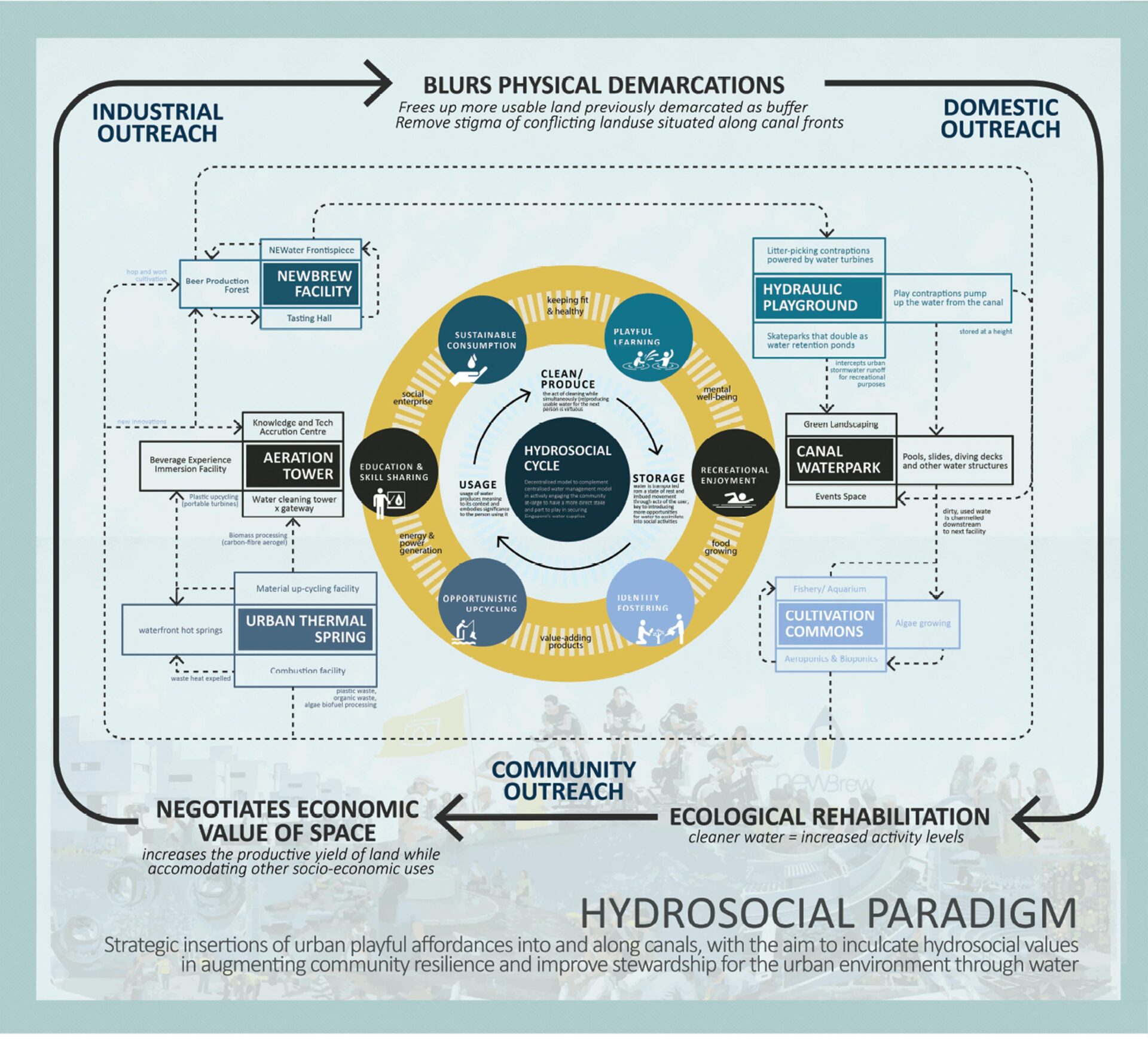
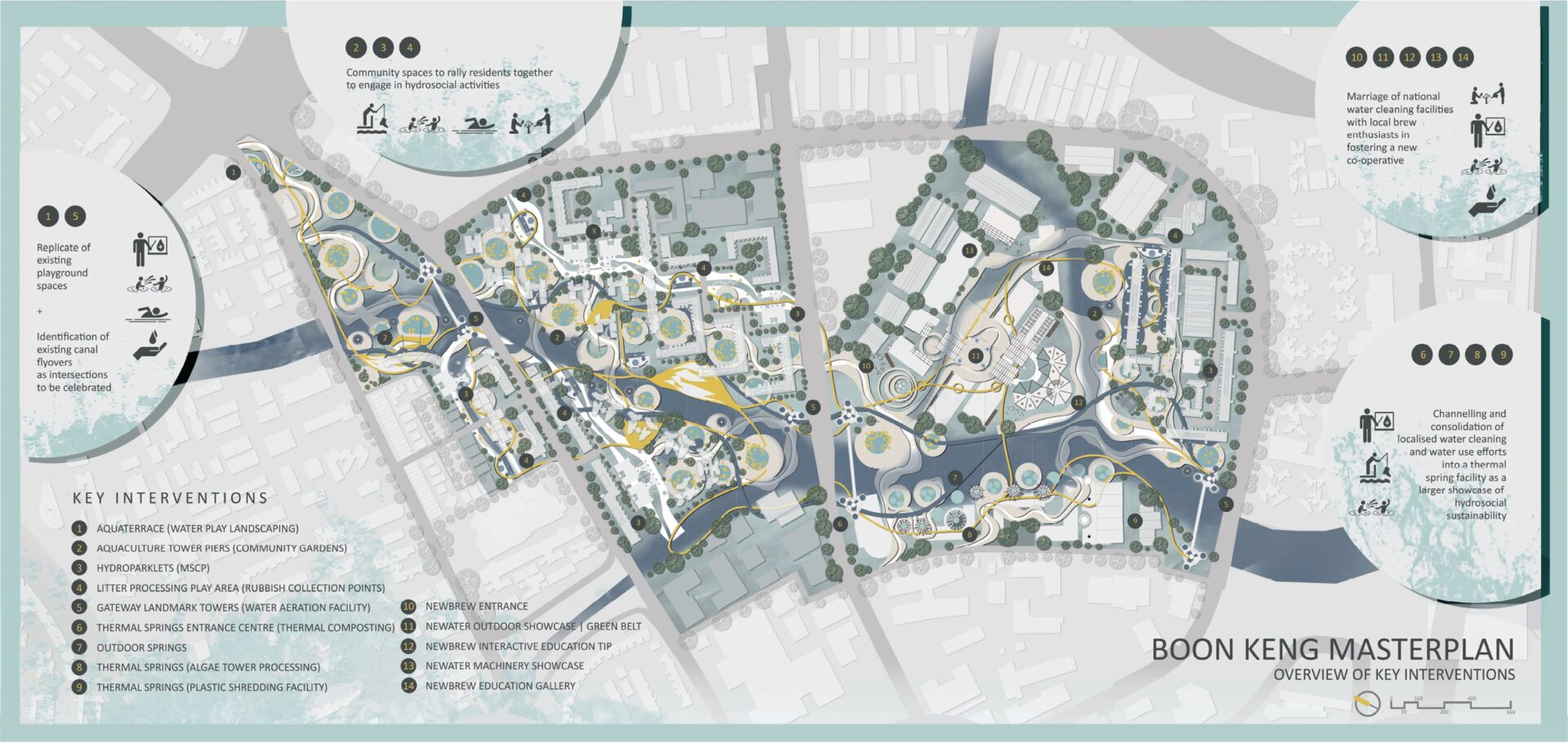
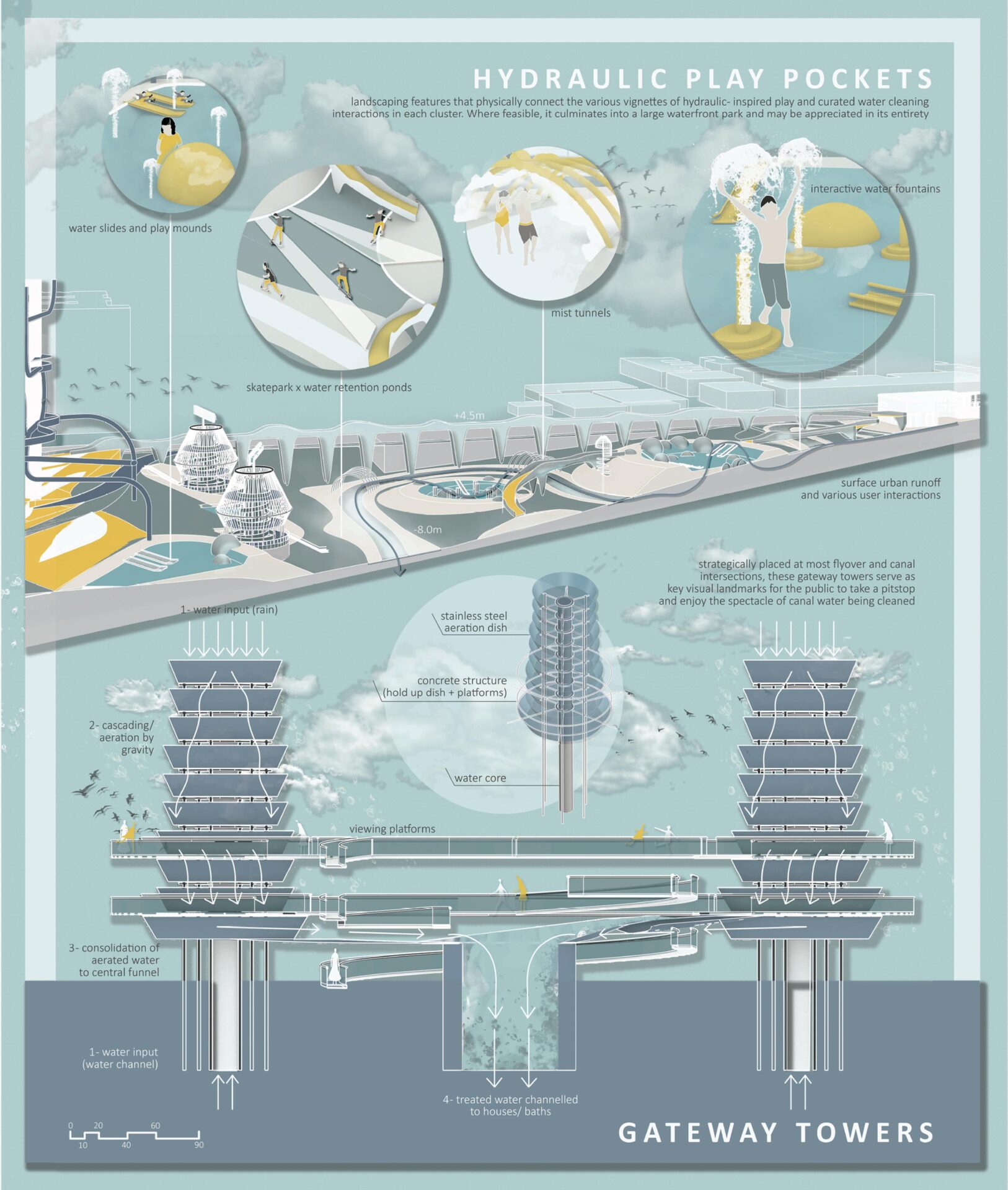
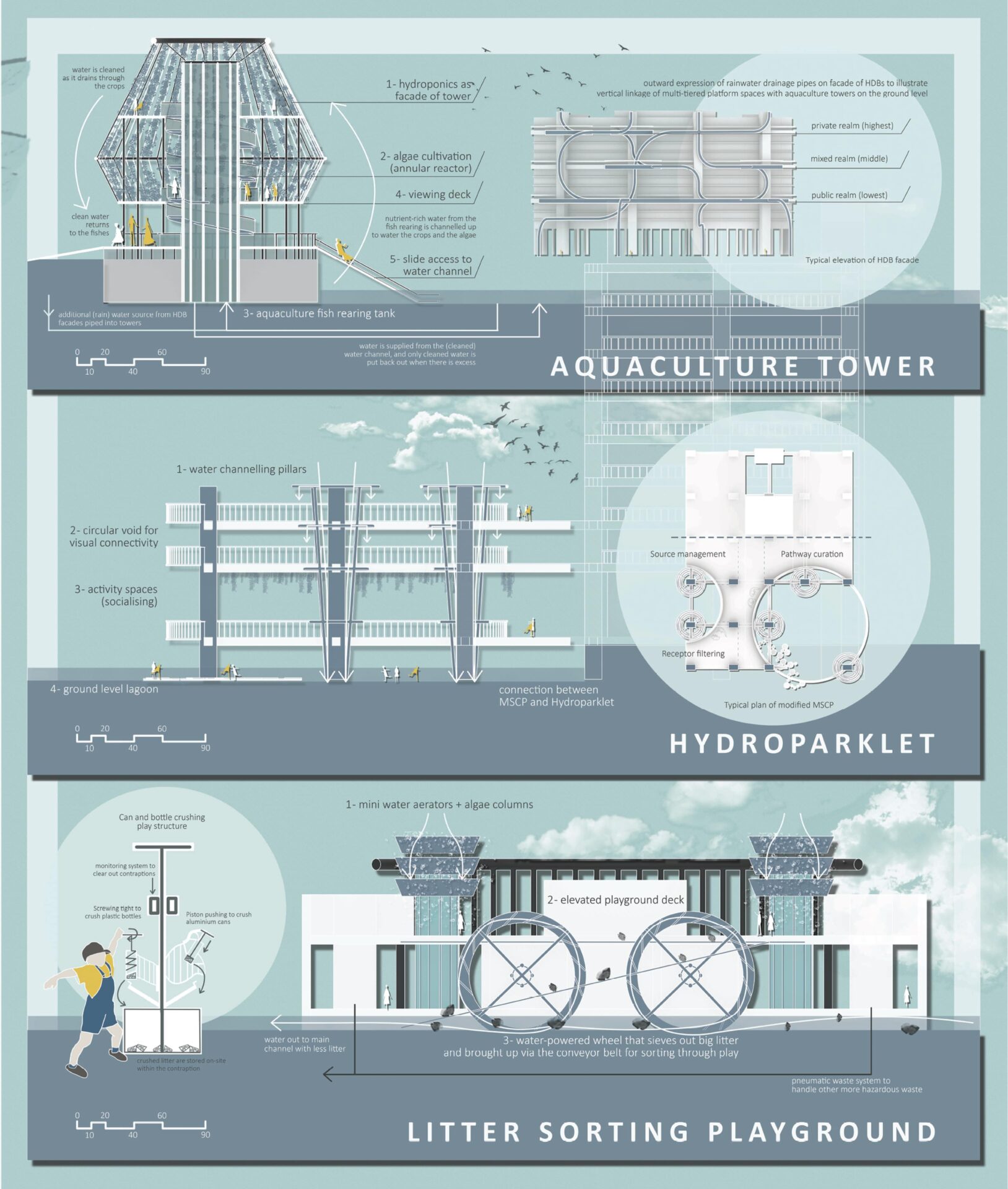
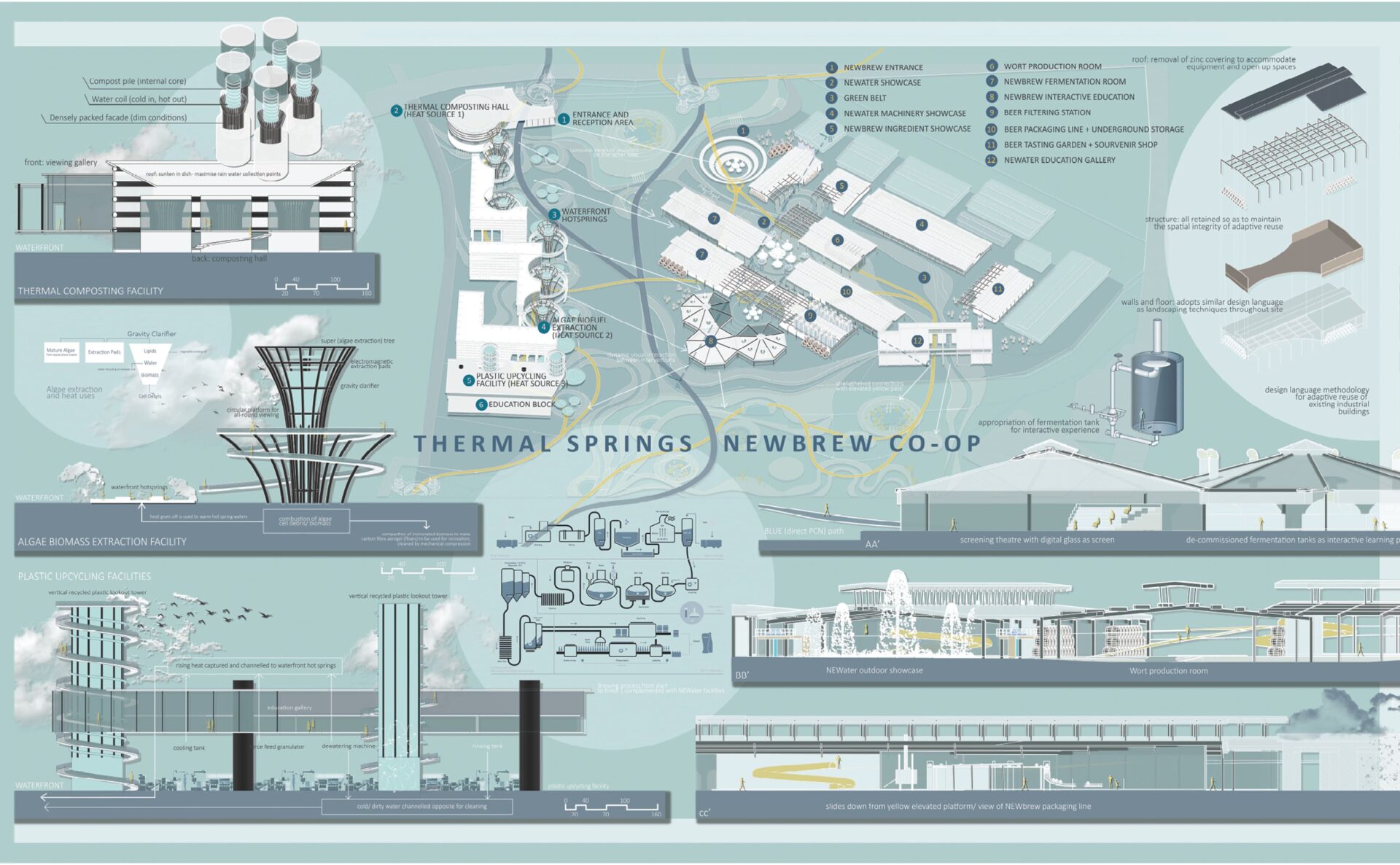
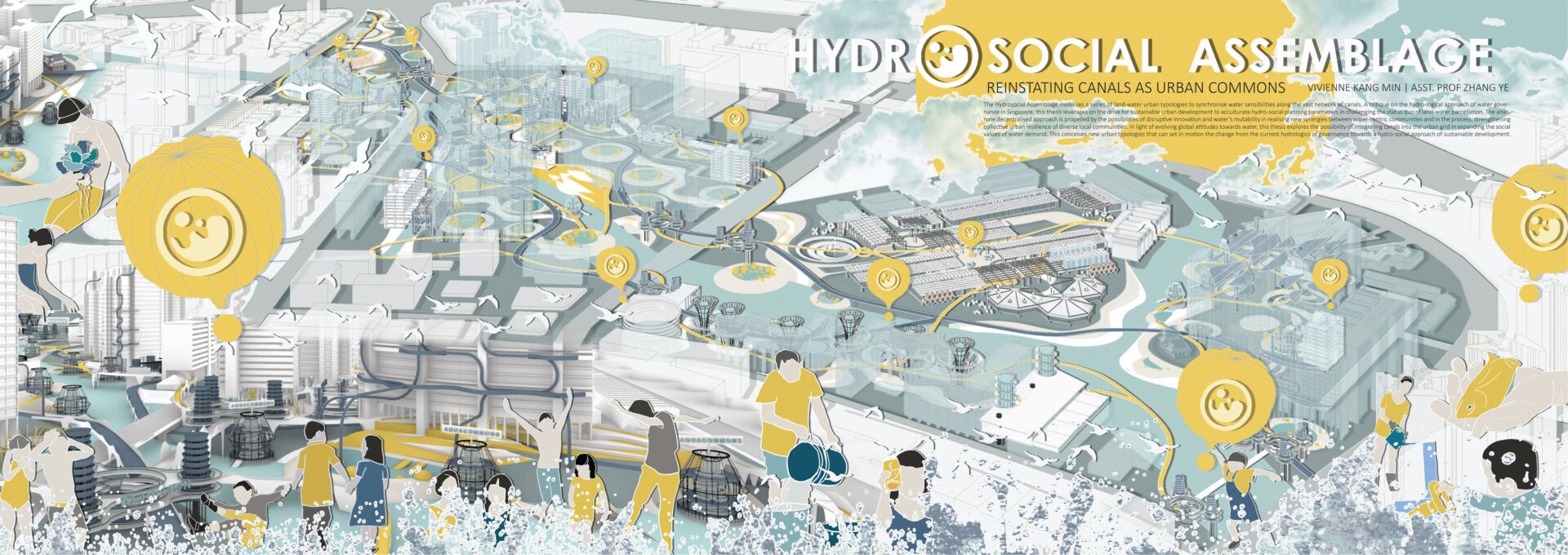
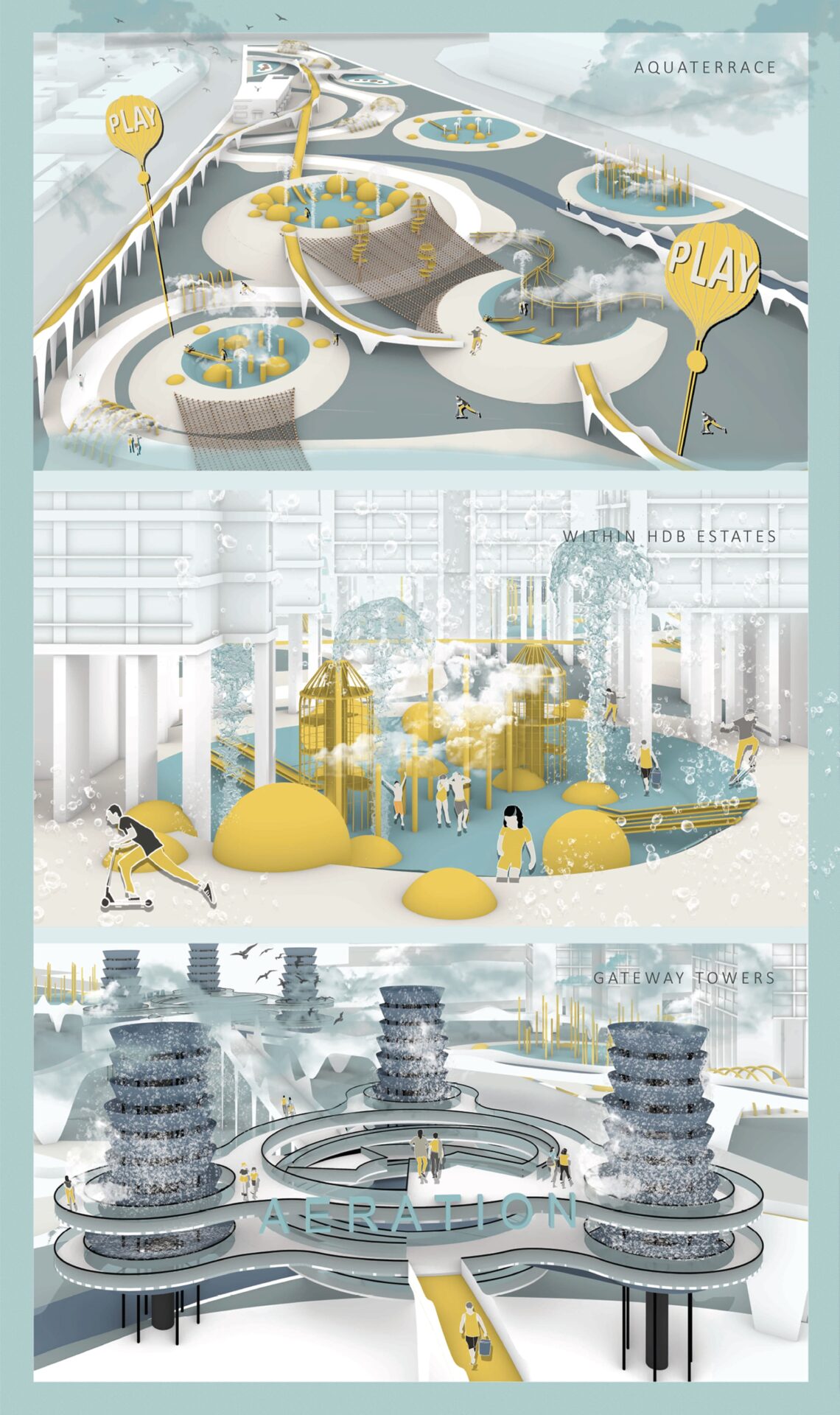
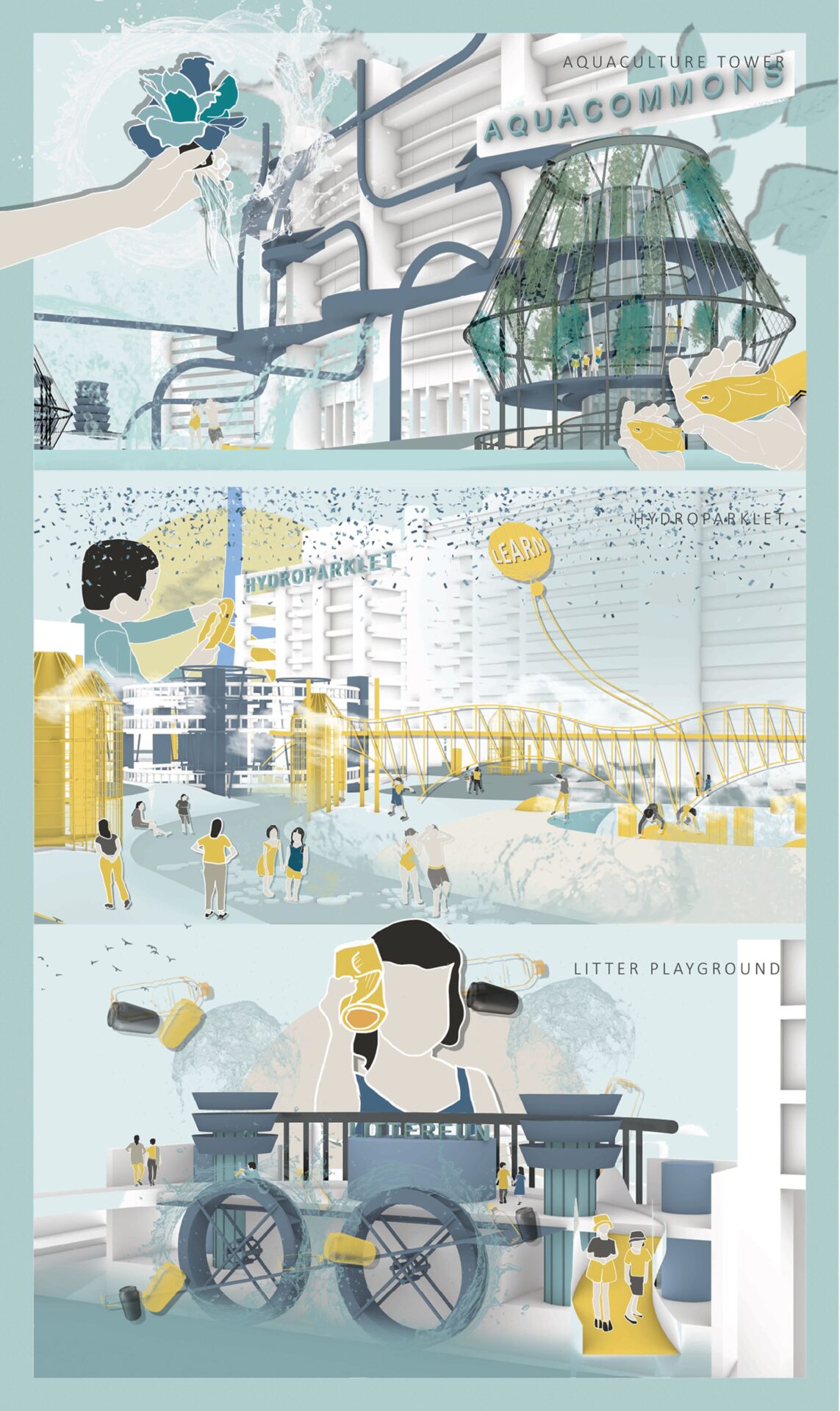
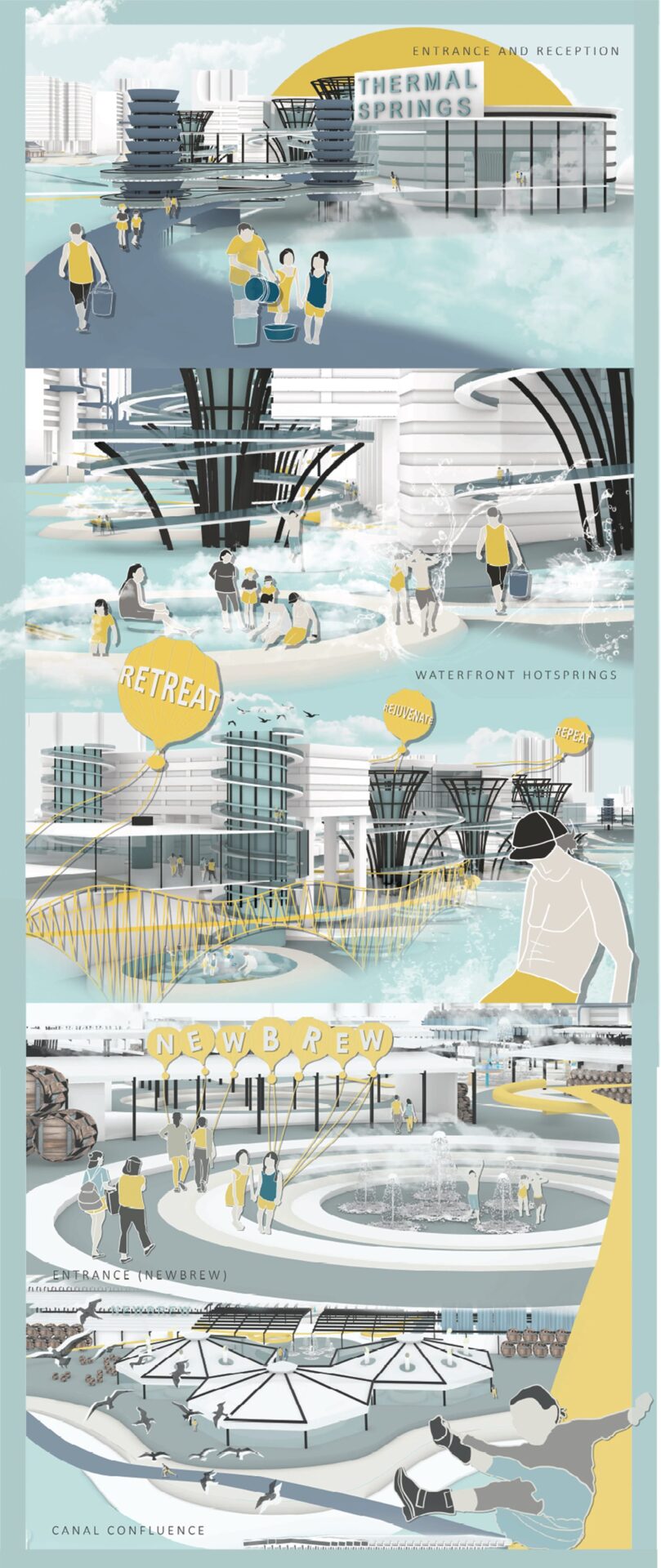
Supervisor's comments:
The value of the central argument of this thesis goes far beyond architecture and urban design. It provides all of us, not just professionals, with a new prism through which the hydro-social value of water could be clearly understood and appreciated, and by which, it also urges us to re-evaluate every single stage of the current practice of water production and consumption. The imaginative design interventions further open up many new opportunities for transforming the present mono-functional canal-scape in Singapore into a interconnected network of multi-functional community rooms.
- Senior Lecturer Zhang Ye (Dr.)